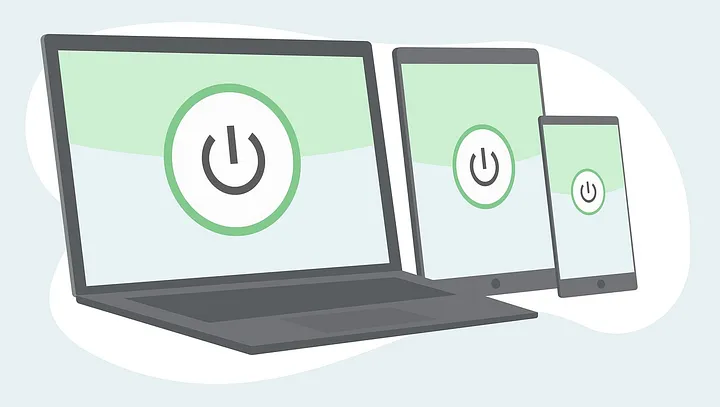Privacy and security online are paramount in an age where personal information can be easily exploited. As a cybersecurity expert, I have developed a set of practices to enhance my online security while using Virtual Private Networks (VPNs). Let’s explore these tactics so you can implement them into your digital life.

✅ Current deal: 🔥 Get NordVPN with up to 75% OFF! 🔥
Understanding the Basics of VPNs
A Virtual Private Network serves as a secure tunnel between your device and the internet. When I connect to a VPN, my internet traffic is encrypted, making it significantly harder for hackers or third parties to intercept my data. Additionally, VPNs mask my IP address, adding an extra layer of anonymity. Understanding these fundamentals allows me to leverage VPNs more effectively.
✅ Current deal: 🔥 Get NordVPN with up to 75% OFF! 🔥
Choosing the Right VPN
Not all VPNs are created equal. Choosing the right VPN service is crucial for ensuring a secure online experience. Here’s what I consider when selecting a VPN:
- No-Log Policy: I prioritize services that have a strict no-log policy. This ensures that my online activities remain private and are not stored on the VPN provider’s servers.
- Strong Encryption Standards: I look for services that utilize AES-256 encryption and robust protocols such as OpenVPN or WireGuard. This adds an essential layer of security.
- Speed and Performance: A reliable VPN should not significantly slow down my internet speed. I often test various VPNs to find one that balances speed and security effectively.
- Multi-Device Support: I prefer a VPN that allows connections on multiple devices, enabling me to protect all my gadgets.
Configuring My VPN Setting
Once I select a VPN, configuring its settings properly is vital to maintaining my privacy online. Here are my preferred settings:
- Kill Switch: I always enable the kill switch feature, which automatically disconnects me from the internet if the VPN connection drops. This prevents any unencrypted data from leaking.
- DNS Leak Protection: Ensuring DNS requests are routed through the VPN prevents third parties from monitoring my browsing activity. I confirm this setting is enabled in my VPN client.
- Firewall Features: Incorporating a firewall with my VPN helps block malicious traffic. I utilize built-in firewall features when available.
Using VPNs Wisely
Utilizing a VPN alone does not guarantee absolute security. I employ various tactics that maximize the benefits of my VPN while diminishing the risks associated with online activities.
Tips for Staying Private and Secure
- Avoid Free VPNs: I never use free VPN services, as they often monetize by logging data and selling it. The risk to my privacy outweighs any potential cost savings.
- Connect to the Nearest Server: When I connect to a VPN server, I usually choose the closest one. This minimizes latency and maximizes speed for a better overall experience.
- Keep Software Updated: I ensure that my VPN application and my devices are frequently updated. This protects against vulnerabilities that may be exploited.
- Be Wary of Public Wi-Fi: Although I feel safer using a VPN on public Wi-Fi, I am always cautious. I make sure the VPN is active before browsing to prevent data breaches.
- Regularly Change VPN Providers: I periodically switch VPN providers. This helps me to evaluate different services and stay updated on the latest security features.
- Use Multi-Factor Authentication: Whenever possible, I enable multi-factor authentication (MFA) for my accounts. This adds an additional layer of security beyond just using a VPN.
Understanding the Legal Aspects
Using a VPN comes with its own set of legal considerations. While I strive for privacy, I also remain aware of the laws governing VPN use within my jurisdiction. Some countries impose restrictions on VPN usage, and being informed about these regulations helps me navigate potential legal pitfalls.
Recognizing the Limitations of VPNs
While I advocate for the use of VPNs, it is essential to understand their limitations. VPNs do not make me invincible online. They primarily serve as privacy tools. Despite utilizing a VPN, I must still practice safe browsing habits, such as avoiding suspicious links and understanding cybersecurity basics.
Staying Informed and Adapting
The landscape of cybersecurity is constantly evolving. I make an effort to stay informed about the latest threats and advancements in VPN technologies. Following cybersecurity blogs, attending webinars, and participating in forums help me adapt my tactics to combat emerging threats effectively.
Conclusion
My approach to maintaining online privacy and security through VPN usage involves conscious decision-making, proper configuration, and continuous improvement of my tactics. By following the tips above and remaining vigilant, I can navigate the internet securely while protecting my personal information. Implementing these strategies can greatly assist in your quest for a private and secure online experience. With VPNs as a tool in your arsenal, you can face the digital world with confidence.
Affiliate Disclosure: By clicking on our links, we may earn commissions at no additional cost to you.